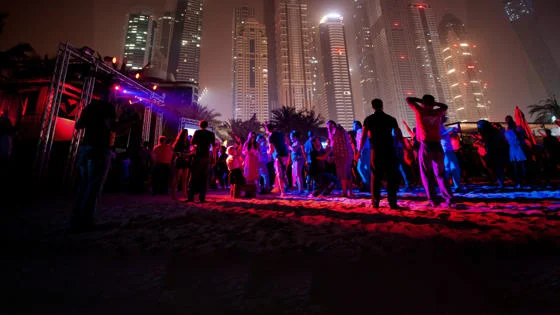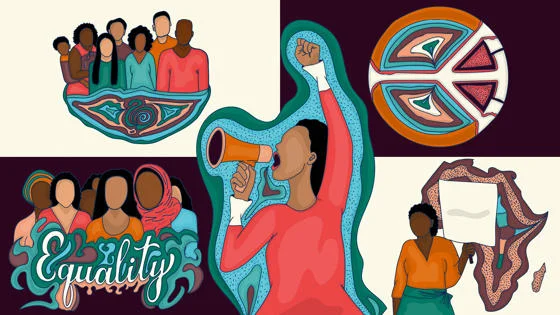Mapping anti-gender movements and resistance

Contents
- What are your research backgrounds?
- What drew you to research this area and take part in the project?
- Can you outline the project and its key aims?
- As part of the project, you are holding a series of workshops bringing together scholars, activists and policymakers from around the globe. Can you tell us more about these workshops?
- What have you found so far and what key themes have emerged?
- What have been some of the biggest challenges you have encountered so far on this project?
Professor Clare Hemmings and Professor Sumi Madhok of LSE’s Department of Gender Studies talk here about their Arts and Humanities Research Council (AHRC) funded network on Transnational "Anti-Gender" Movements and Resistance: Narratives and Interventions. The project, which launched in September 2021, will run for 16 months.
What are your research backgrounds?
Clare: I have a background in French and English literature and Women’s Studies. Most of my research has been on storytelling and the ways stories about gender, feminism, LGBT and queer social movements have been told and institutionalised.
Sumi: My training is in political theory and I’m a self-taught feminist political theorist with an ethnographic sensibility. I combine theoretical and philosophical investigations with ethnographies of lived experiences and political struggles of marginalised groups.
What drew you to research this area and take part in the project?
Clare: This project comes out of our conviction and knowledge that the mobilisation of anti-gender politics across the globe is one of the most important political issues of our time.
Anti-gender movements can describe a wide range of right-wing and populist movements, which position themselves against feminism, LGBT and migrant rights, and critical-race theory. This positioning is central to how the claims of anti-gender movements are navigated, solidified and produced. So in Hungary, for example, the centrality of "anti-gender" arguments to the right-wing government’s populist appeal means Gender Studies at the Central European University (CEU) can be closed by the combination of anti-feminist and anti-"foreigner" discourse. These are the kinds of overlaps and tensions that the project wants to map.
Sumi: This mobilisation of anti-gender politics takes place not only at election time to stoke up certain constituencies, but it is now increasingly finding its way into national parliaments where it is being used to reconfigure law and societies through state policymaking.
History tells us that political struggles by marginalised groups are always precarious and in danger of being wrested away in a blink of an eye. Many histories of rights are relatively recent, even within living memory of people around the globe. Many nations which legislated to give LGBTQ and abortion rights are now rolling these back. You can see this trend within the lifetime of one generation.
This mobilisation of anti-gender politics takes place not only at election time to stoke up certain constituencies, but it is now increasingly finding its way into national parliaments where it is being used to reconfigure law and societies through state policymaking.
Can you outline the project and its key aims?
Sumi: The subtitle – Narratives and Interventions - says it all! We bring our own methodological expertise to the project. Clare’s expertise is in narratives whereas I think about the political concepts that individuals and groups use to conduct their politics.
We look at these narratives in different parts of the world where different anti-gender questions are important. For example, in some countries, there are questions around transphobia, in others it’s anti-abortion or anti-migrant sentiment. At many junctures, you see them all come together.
We explore how we can think about these questions transnationally as a large, global contemporary political moment.
In all of this, we must never forget that there are always movements resisting these forces. The march of history is never from one direction so there are always pushbacks and counter-discourses. The project holds both together - that’s what makes it so exciting.
Clare: What has also been important is having a strong international advisory committee for the project. We have brought people together who have been doing this work for decades from different parts of academia and activist or policy locations.
One of the things that typifies anti-gender mobilisations is aggression so we wanted to provide a network that allows people to speak to others who they can build resistance with: locally, nationally and internationally.
As part of the project, you are holding a series of workshops bringing together scholars, activists and policymakers from around the globe. Can you tell us more about these workshops?
Sumi: The project includes four transnational workshops: two at LSE, one at SOAS and another in Brazil. We had a very successful first workshop in December 2022 which was attended by almost 300 people. Our next workshop takes place in April in Rio de Janeiro and it will look at the transnational and transregional politics of anti-gender in Latin America. Participating in it will be Brazilian and Latin American scholars and activists engaged with gender, sexuality, and human rights work.
Clare: We will also publish the material that comes out of the first workshop on the Engenderings blog, which is run by PhD students at LSE. Through this, everyone will have access to the papers, and the panel event from the December workshop is available in podcast form. We hope this ensures a broad audience can engage with the project.
One of the things that typifies anti-gender mobilisations is aggression so we wanted to provide a network that allows people to speak to others who they can build resistance with: locally, nationally and internationally.
What have you found so far and what key themes have emerged?
Clare: It’s common to think of "anti-gender" sentiments as part of what right-wing states or actors use to persuade people that they belong to that right-wing project. But as Sonia Corrêa (Director of Sexuality Policy Watch) shows, in Brazil, for example, the right-wing state (and the success of Bolsanaro) emerged out of, ie, subsequent to, the vicious anti-feminist, anti-black and anti-LGBT movements that characterised his claims to authority. So this was an interesting challenge to the idea of "anti-gender" sentiments as secondary effect.
Everyone in the workshops also said anti-gender activists use the language and narratives of victimisation and marginality to advance their claims. And it became extremely clear that the rolling back of sexual and gendered rights is predicated on framing those rights as privileges. This narrative strips rights from people from who have had few, if any, by appropriating the language of discrimination.
Sumi: We are also seeing a zero-sum approach in anti-gender movements ie, my rights can only exist if you don’t have yours. This kind of discourse is inherently exclusionary and based on a long history of denying the humanity of various groups. The super swift rolling back of hard-won rights is not happening alone of course; what we’re also witnessing is an institutional erasure of the histories of political struggles by marginalised groups, which in part explains the political zeal with which the teaching of critical race theory is under attack, as is that of empire, as are abortion rights, and as are rights of trans and non-binary peoples.
What have been some of the biggest challenges you have encountered so far on this project?
Clare: I think we underestimated the need for a project like this.
The other thing is the term "gender" and the phrase "anti-gender" don’t just have life in terms of cultural discourses - such as contemporary culture wars - but they are also challenged within feminism, and that has been very draining.
Although feminism has always had many layers and positions, I’ve personally found it challenging to be confronted with an insistence on sexual and gendered essentialisms: the assumption that sex difference should be the basis for particular political claims.
What’s difficult is not the arguments, as I have arguments for a living, but the hostility and the insistence that what we’re doing is problematic from constituencies you wouldn’t expect.
Sumi: One of things we look at as scholars and theorists is the way different and distinct political forces come together on a common platform often not deliberately but because their politics align along a common axis.
There are important questions to be asked about the transnational nature of these global political alignments and overlaps. For example, what kinds of political formations are being established on the platform of anti-gender in different parts of the world? And, how are these political alignments shaping laws and policies, including access to health care and economic activities? Furthermore, what is their impact on the quality of citizenship enjoyed by marginalised groups around the globe? And, finally, what are the modes of political resistance undertaken by marginalised groups who are often the targets of anti-gender mobilisations? And, what can we learn from the politics of resistance of the marginalised about non-exploitative and egalitarian ways of arranging our politics?
Download a PDF version of this article





